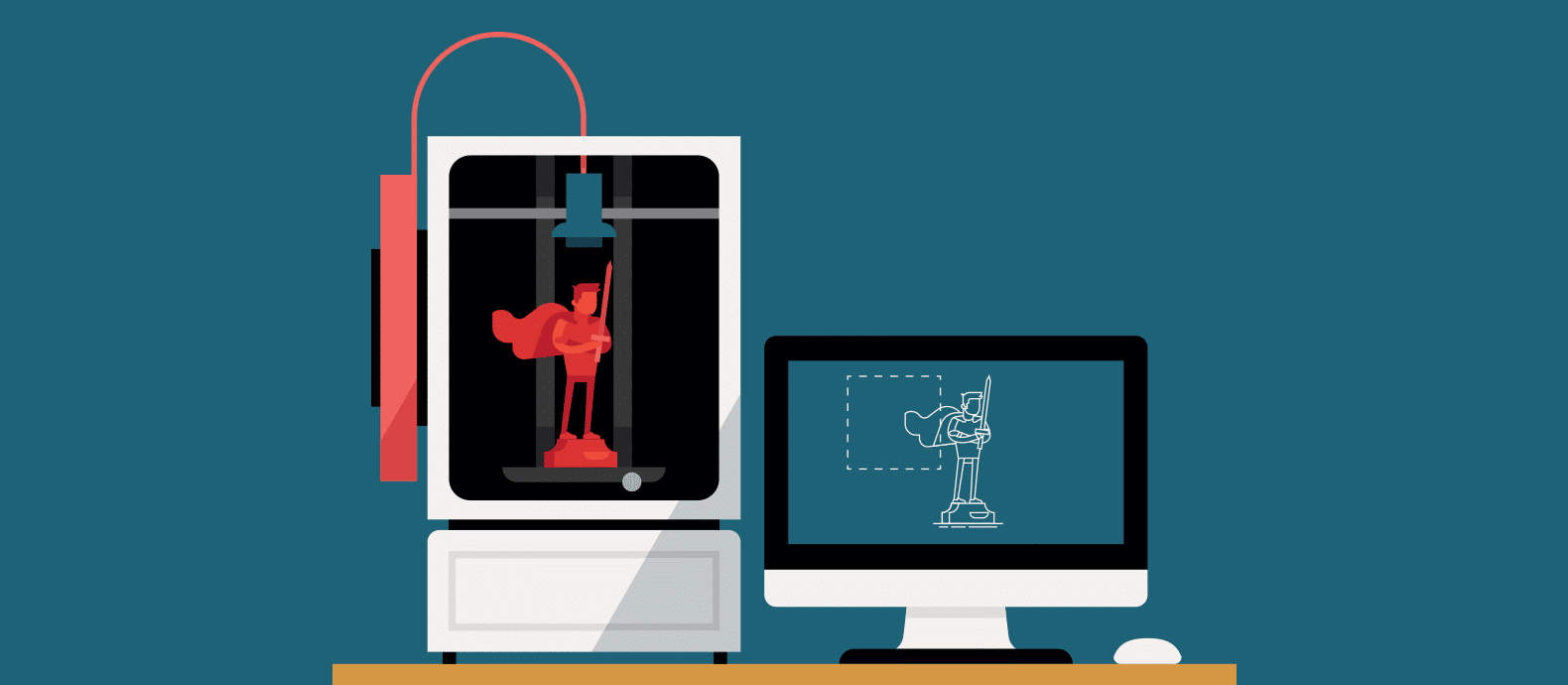Wherever a product becomes successful, counterfeits and replicas will follow. And wargaming is no exception. The process of counterfeiting these miniatures, known as recasting, has plagued wargaming companies for decades.
- Counterfeiters mold authentic wargaming minis and sell the recasts at a discount.
- Many consumers have irreverent attitudes toward hobbyist creations.
- Recasting can break the back of the wargaming community.
Wargaming is a hobby built around collecting, painting, and using miniature figures to play in strategic tabletop battles. A single miniature can cost more than $100 and can cost hobbyists dozens of hours to assemble and paint fully. It should come as no surprise then that where a niche hobby like wargaming may lack in mass appeal, it more than makes up for customer loyalty and immersion.
Illegal copies of these figurines are widely available online. They’re found on the websites of counterfeiters themselves, within protective and secretive communities, and, as always, on enormous ecommerce sites. The internet has expanded the problem by offering a huge market of consumers to illegal counterfeiters and allowing them to scale up their recasting operations.
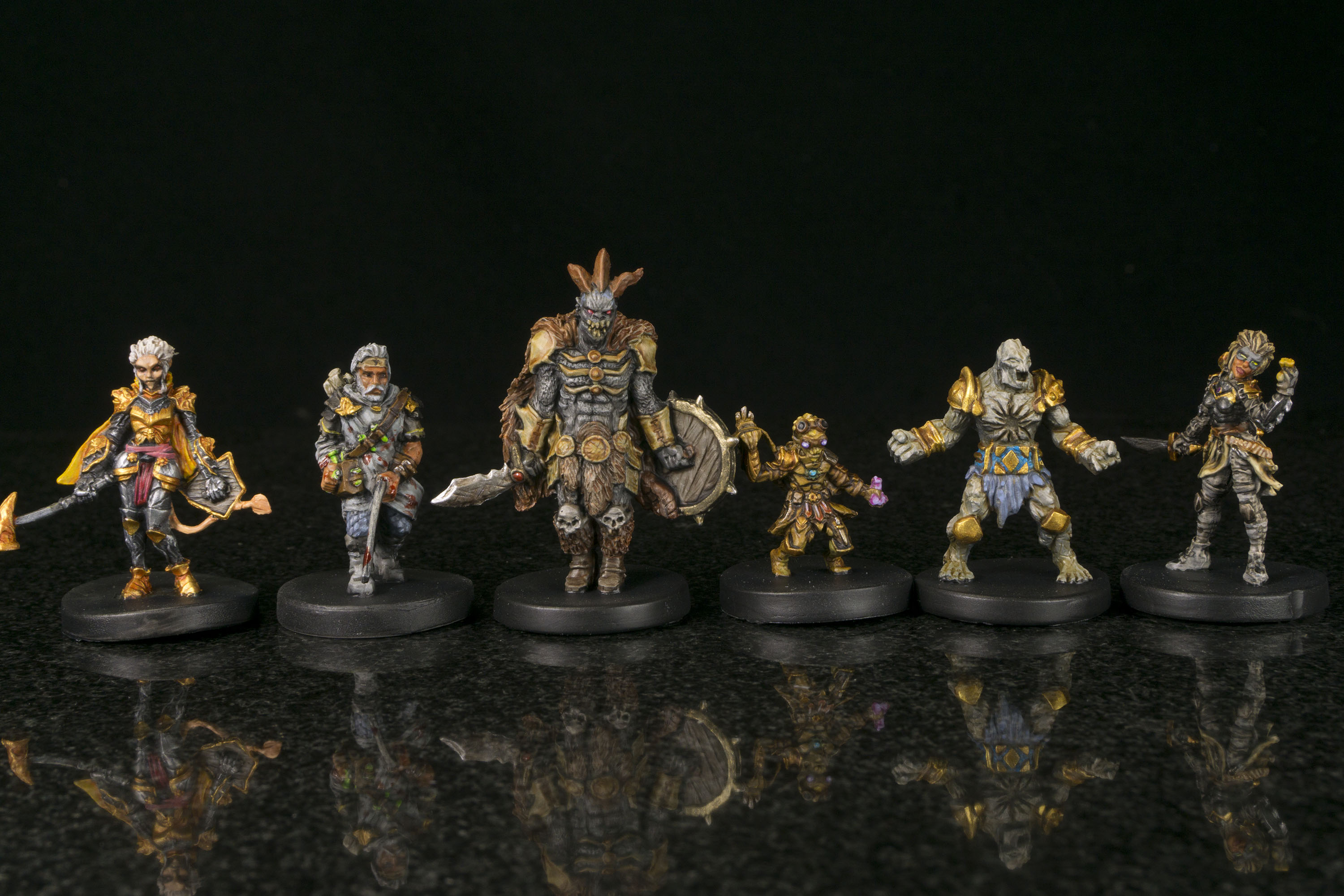
What is recasting?
Recasting is a method of counterfeiting gaming miniatures (minis, models, etc). It’s fairly straightforward to carry out and requires little investment to start the process. In simple steps, recasters first take an existing mini and then cover it in a molding rubber. After a few coats of molding rubber, each added once the last layer has dried, the mold can be removed from the original mini. This mold is now filled with a liquid resin and left to dry. And voilà, a counterfeit mini is made!

Answering legal questions about recasting
“Can I recast copyrighted minis if I never plan to profit from them?”
With explicit authorization from the copyright holder, yes. Otherwise, even creating a counterfeit just for yourself is illegal. Per Games Workshop’s IP policy, “Reproduction for personal use is not an automatic exemption from copyright protection in many territories worldwide.”
Warhammer recasts, especially 40K recasts, have caused Games Workshop considerable headaches in the past.
“Can I sell my minis? Are there any restrictions?”
If the miniature is an authentic piece, then go for it! If the mini is infringing on any IP rights, then you mustn’t resell it. If you’re unsure, we’d recommend you stay on the safe side, in case it poses a legal risk.
“Is it illegal to copy the general design, if I’m careful to not use any protected symbols/logos?”
Copyrights and design rights still apply here. In general, we always recommend you get permission from the IP owner. Otherwise, you could work on creating something original!
Spotting fake miniatures
The improvement in 3D printing technology has impacted the wargaming community. With higher-quality 3D printers becoming more accessible, the potential for high-quality recasts or custom miniatures has increased.
However, growing online communities and marketplaces dedicated to wargaming are being monitored and regulated by IP holders to prevent the sale of counterfeit miniatures. The introduction of innovative solutions for authenticating miniatures, such as embedded NFC chips or QR codes that verify the product’s authenticity also makes it easier to tell a legitimate miniature from a recast.
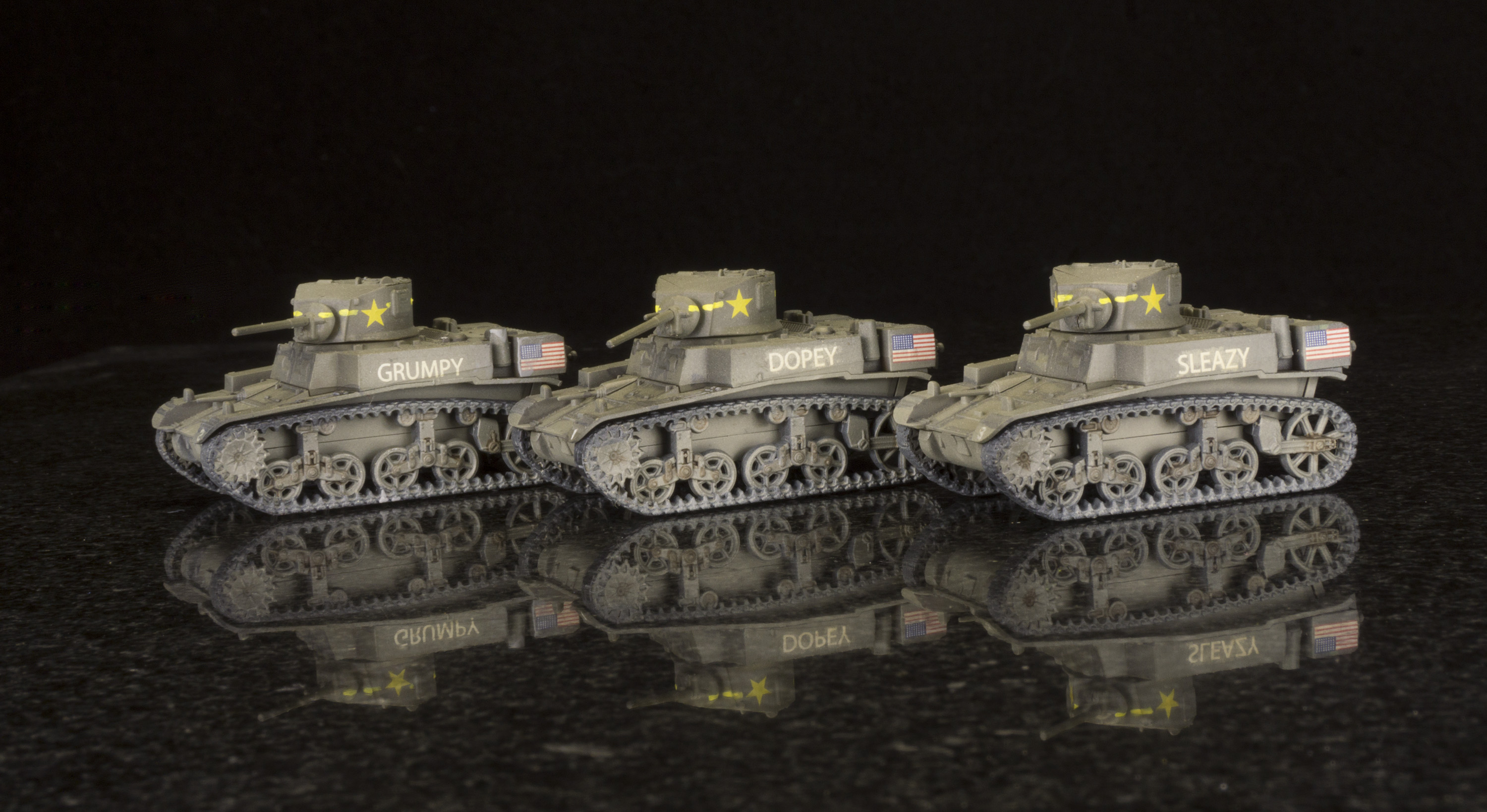
Red Points’ views on fake miniatures
“It’s just a bit of plastic! Why should I pay so much?”
This is a prevalent argument, and one that is a common concern for customers, but one that doesn’t hold much weight when analyzed. Why is this little plastic model, which is shorter than my finger, so expensive?
Well, it’s important to remember that the price reflects the entire creation process of the model and the game itself. The game developers, those who create the artworks and designs, the sculptors and engineers, and the manufacturers. All these factors need to be considered when pricing the miniatures because they’re all essential parts of the creation process. For most companies, it takes 9-18 months to create a miniature product, depending on the amount of unique sculpts in a set, the type of material, and the detail of the model. So a significant amount of time is required to make these products, although they are small.
“If you’re losing sales to recasters, then your products aren’t high-quality enough to justify the price”
Recasters can afford to simply… recast. They don’t have to worry about any of the overheads that legitimate companies do. When they make Warhammer recasts, they don’t make the designs, do any marketing, or do any work to create and uphold the expansive world of lore found in Warhammer 40K.
They steal copyrighted content from authentic brands, cut out all the creative work required to bring minis to life, and simply print out the work of others to sell at a discounted price. It shouldn’t be surprising, then, that they are able to sell these minis so cheaply since they’re barely doing any of the work.
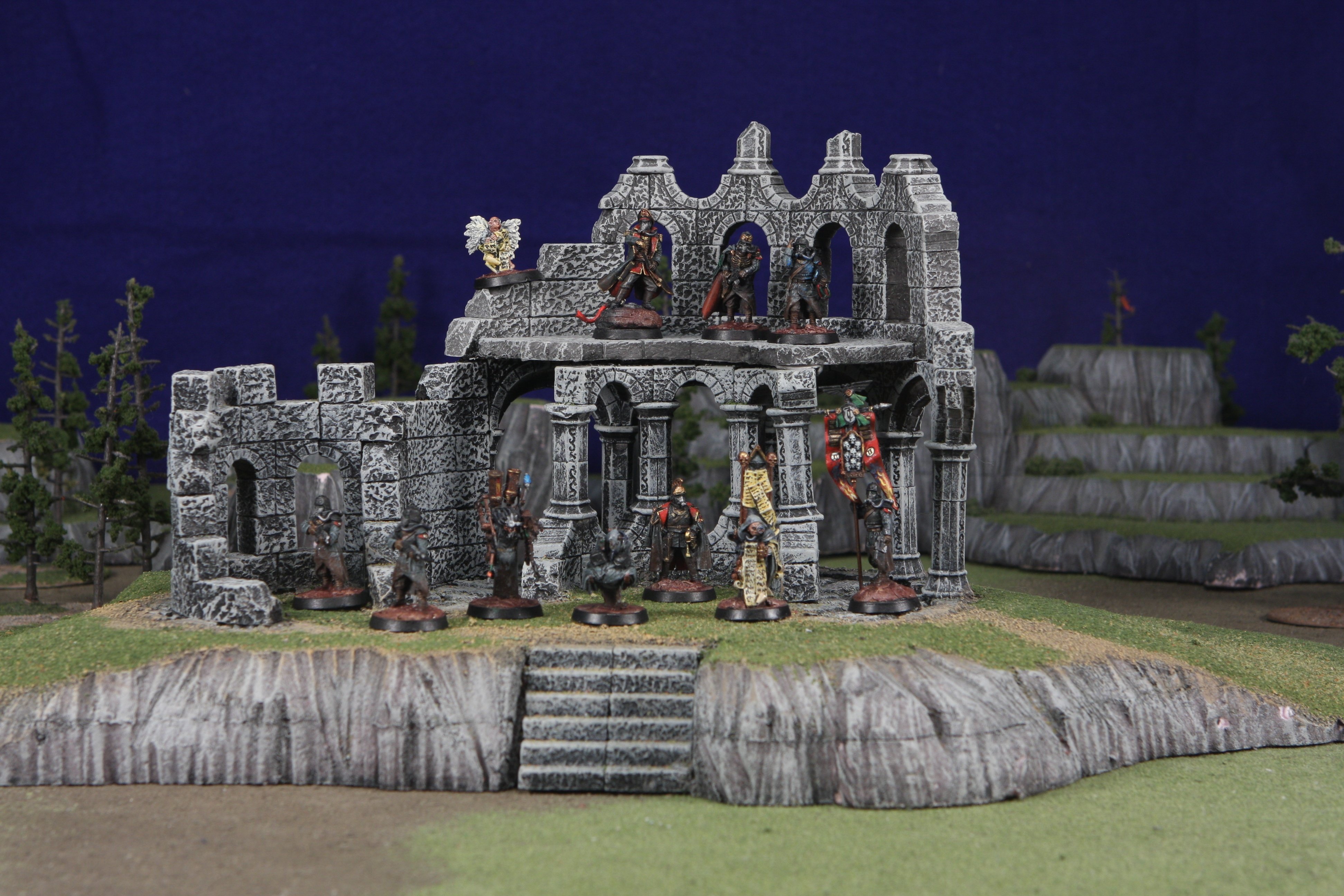
“It’s out of print – recasting is the only way I can get this model!”
Limited editions and discontinued lines can be very frustrating – we understand this clearly. However, this is still not a justification for recasting the Warhammer models, nor for supporting counterfeits.
The first issue is that it devalues the property of hobbyists who own these models. To have a real version of a limited-edition item can be prestigious in such a hobby, and it is the prerogative of the copyright owner to keep certain product lines limited. If you own a limited-edition item, and someone else makes illegal copies of that item, then the value and prestige of your limited-edition item drops significantly.
Secondly, it discourages the copyright owner from producing re-issues of popular out-of-print (OOP) product lines. If there is no demand, there is no reason for them to re-publish these creations. The people who are punished most by this are authentic hobbyists, who refuse to fund illegal counterfeiting and lose the opportunity to have a favorite OOP product returned.
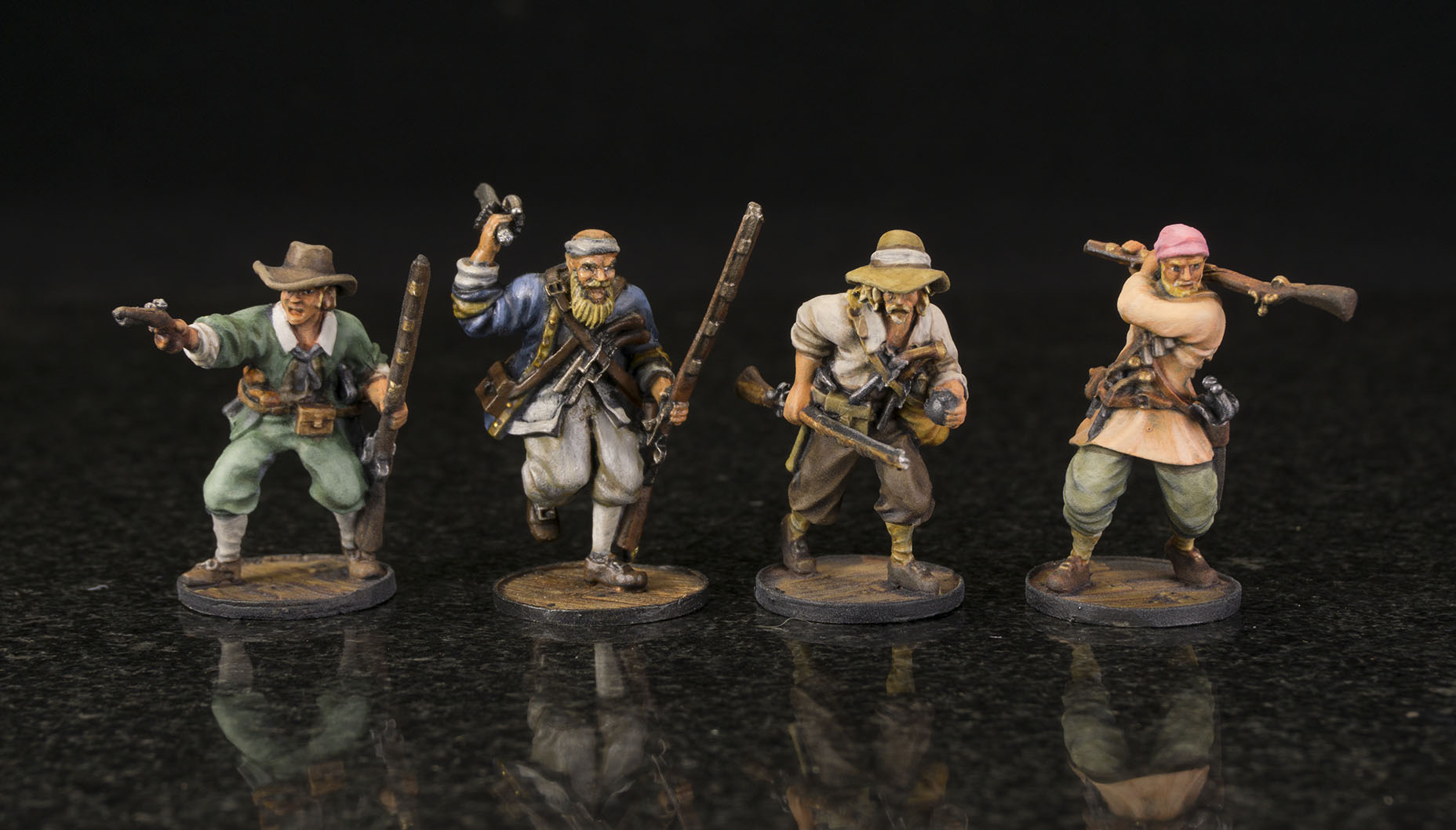
“I have a problem with this particular company, so I don’t feel bad recasting their stuff.”
This is highly discouraging for fledgling designers and entrepreneurs considering starting their own line of gaming products. If this industry isn’t profitable for the people who put years of hard work into it, then why would anyone invest in it? Entrepreneurial artists dream of becoming successful – if the most successful artists in their field are still scraping by, then new talent will soon dry up and look elsewhere for paths to capitalize on their creativity.
“Warhammer recasting allows you to dip your toe in the water before you spend a lot on the hobby, which you might not enjoy.”
A huge amount of people find themselves curious about hobbies like these, especially in the last few years, since “geek culture” has become a lot more mainstream and less socially ostracized. But many hobbies, like wargaming, for example, are not cheap by any means. They are deep, immersive pastimes, which take some investment before you can actually take part. And since the appeal is sometimes rather niche, not everyone has a circle of friends who can introduce them to the hobby.
But this is where brick-and-mortar shops are especially useful. We spoke to Privateer Press, who had this to say, “counterfeiting also hurts the backbone of every local gaming community, the local game store, by removing revenue they need to continue to offer critical services, like a place to meet up and play, the organization of tournaments and leagues, and as a vital center of recruitment for new players to ensure a games community continues to grow.”.
This is an old-school game. The minis are assembled and painted by hand by hobbyists, and the games are played face-to-face, so the local game store is vital to the survival of this industry. Without it, players would find it much harder to meet up, and the community would suffer terribly.
Besides, if your first impression of the hobby is of shabby, counterfeited models, would you really feel enthused enough to dive into the hobby? Red Points thinks not.
What’s next
Understanding the intricacies of Warhammer recasts can help shed light on the broader issue of counterfeits in wargaming. By exploring this topic, it becomes clear how much value there is in having authentic products, the creativity that goes into creating original miniatures, and the negative impact that counterfeiting can have on both the industry and the community.
It is important to support legitimate creators and practices and to find innovative solutions for combating counterfeits. This is necessary to maintain the integrity and passion of the hobby.
If you’re concerned about counterfeit Warhammer products, consider an automated solution. Schedule a free consultation with Red Points to learn more.



